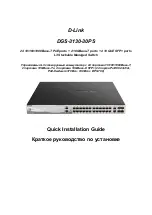
Authoritative pools
To process the
DHCPINFORM
packets received from a client within the given IP pool, a DHCP server has to be
configured as
authoritative
for that IP pool. The server is the sole authority for this IP pool so when a client
requests an IP address lease where the server is authoritative, and the server has no record of that IP address,
the server will respond with
DHCPNAK
message which indicates that the client should no longer use that IP
address. Any
DHCPINFORM
packet received for a non-authoritative pool will be ignored by the DHCP server.
The
authoritative
command has no effect when configured on a static pool or an incomplete pool without a
network statement. In such cases, the server intentionally not send an error message.
A CLI toggle is provided under the
pool
context that will allow the
authoritative
configuration.
NOTE:
The
authoritative
command requires a network statement to be configured on a pool.
Authoritative dummy pools
A dummy pool, without the range statement, can be configured and made authoritative. A dummy pool allows
static-bind entries which do not have matching dynamic pools with network statements to be configured. By
creating a dummy pool on a DHCP server, the support for
DHCPinform
packets will not be actively serving the
client on this pool. No active leases or resource consumption will be sent to the DHCP server when this option is
used.
Dummy pools help the DHCP server learn the network topology.
Example
dhcp-server pool dummy192
network 192.168.10.0 255.255.255.255
option 1…
option 2…
:
option n…
authoritative
exit
Change in server behavior
Making the server authoritative for an IP pool changes how the server processes
DHCP REQUEST
packets.
The following table exhibits the behavior on the receiving
DHCP REQUEST
and
DHCP inform
packets from
DHCP clients residing on either authoritative and non-authoritative pools.
258
Aruba 2930F / 2930M Management and Configuration Guide
for ArubaOS-Switch 16.08
















































